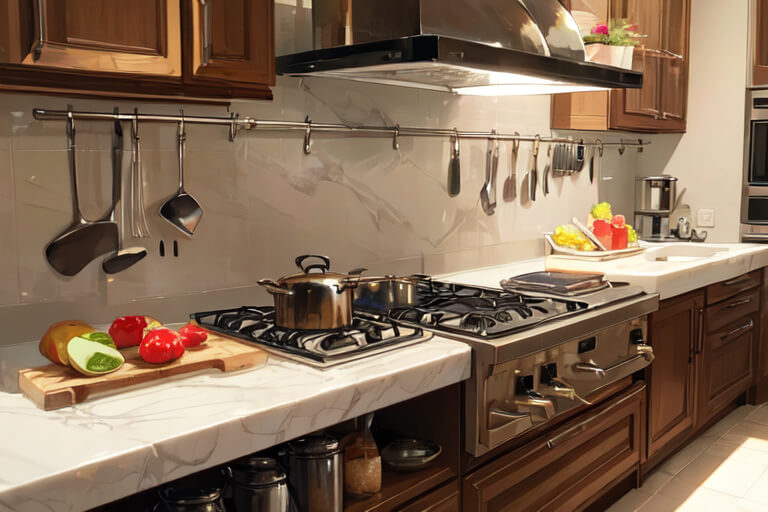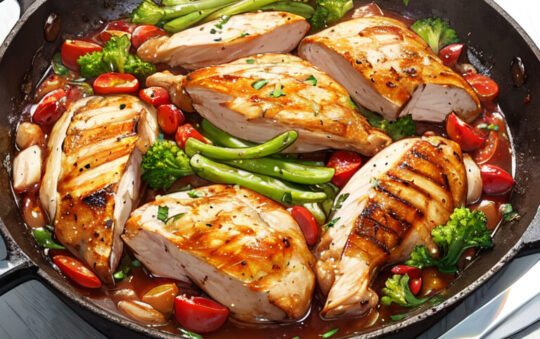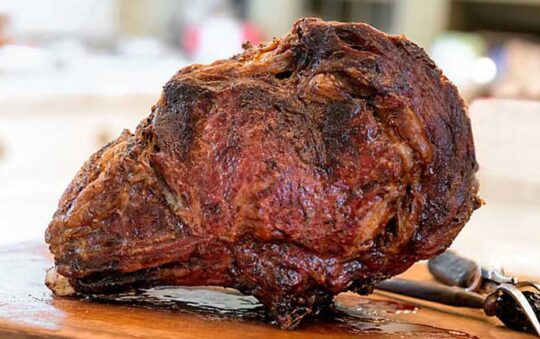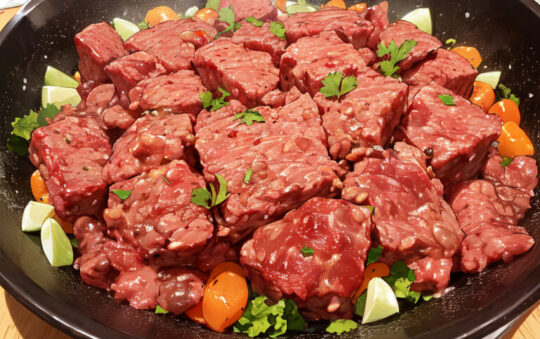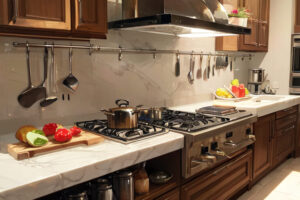
Learning how to cook can be an exciting and rewarding experience. Whether you are a beginner or have some experience in the kitchen, there is always room for improvement. With so many resources available, it can be challenging to know where to start. In this article, we will explore the best ways to learn how to cook and provide tips to help you become a better cook.
One of the best ways to learn how to cook is by taking a cooking class. Cooking classes provide hands-on experience and allow you to learn from experienced chefs. You can find cooking classes at local community centers, culinary schools, or even online. In addition to learning new recipes and techniques, cooking classes are a great way to meet new people who share your passion for food.
Another way to improve your cooking skills is by reading cookbooks. Cookbooks provide a wealth of knowledge and inspiration for home cooks. They often include step-by-step instructions, cooking tips, and beautiful photographs to guide you through the process. Whether you are looking to master a particular cuisine or learn new techniques, there is a cookbook out there for everyone.
Understanding the Basics
Learning how to cook can be a fun and rewarding experience. However, before diving into complicated recipes, it’s important to understand the basics. Here are some essential things to know before starting your culinary journey.
Kitchen Equipment Essentials
Having the right kitchen equipment is crucial for successful cooking. Here are some essential items every beginner cook should have:
- Cutting board
- Chef’s knife
- Pots and pans (at least one of each)
- Mixing bowls
- Measuring cups and spoons
- Spatula and wooden spoon
- Oven mitts
- Tongs
- Whisk
Investing in quality equipment can make a big difference in your cooking experience. However, it’s important to note that you don’t need to break the bank to get started.
Ingredient Selection
Choosing the right ingredients is just as important as having the right equipment. Here are some tips for selecting ingredients:
- Choose fresh ingredients whenever possible
- Read recipes carefully to ensure you have all necessary ingredients
- Don’t be afraid to experiment with different herbs and spices
- Consider the seasonality of ingredients
By selecting quality ingredients, your dishes will taste better and be healthier.
Cooking Techniques
There are many cooking techniques to master, but here are some basic ones to start with:
- Sauteing: cooking food quickly in a small amount of oil or butter
- Boiling: cooking food in boiling water
- Roasting: cooking food in the oven, often with oil or butter
- Grilling: cooking food over an open flame or hot coals
- Baking: cooking food in the oven without added fat
By mastering these techniques, you’ll be able to cook a variety of dishes with confidence. Remember to start with simple recipes and work your way up to more complicated ones.
By understanding these basics, you’ll be well on your way to becoming a confident and skilled cook.
Practice Through Recipes
Learning how to cook is a process that involves a lot of practice. The best way to improve your cooking skills is to try out different recipes. Here are some tips on how to practice through recipes.
Starting with Simple Dishes
If you are new to cooking, it is best to start with simple dishes. Look for recipes that have a short list of ingredients and easy-to-follow instructions. This will help you build your confidence and get comfortable in the kitchen.
Some examples of simple dishes are scrambled eggs, grilled cheese sandwiches, and pasta with tomato sauce. These dishes are easy to make and do not require a lot of time or effort.
Exploring Diverse Cuisines
Once you have mastered some simple dishes, it is time to explore diverse cuisines. Trying out different cuisines will help you learn about new ingredients and cooking techniques.
Look for recipes from different parts of the world, such as Indian curries, Mexican tacos, or Japanese sushi. This will help you expand your palate and develop your cooking skills.
Recipe Variations and Creativity
As you become more comfortable in the kitchen, you can start experimenting with recipe variations and creativity. Try adding different spices, herbs, or vegetables to your dishes. You can also try substituting ingredients to create your own unique recipes.
For example, you can add mushrooms to your pasta sauce, or substitute chicken for tofu in your stir-fry. This will help you develop your own cooking style and create dishes that reflect your personality and taste.
In conclusion, practicing through recipes is the best way to learn how to cook. Starting with simple dishes, exploring diverse cuisines, and experimenting with recipe variations and creativity will help you improve your cooking skills and develop your own unique style.
Learning from Experts
Learning from experts is one of the best ways to improve cooking skills. There are several resources available for those who want to learn from professionals in the culinary world. Here are some of the most effective ways to learn from experts:
Cooking Classes and Workshops
Attending cooking classes and workshops is a great way to learn from experts. These classes are usually taught by professional chefs who have years of experience in the industry. They can teach you everything from basic cooking techniques to more advanced skills. You can find cooking classes and workshops in your local community or online.
Online Tutorials and Courses
Online tutorials and courses are another great way to learn from experts. There are several websites that offer cooking tutorials and courses taught by professional chefs. These courses are usually self-paced, so you can learn at your own pace. They are also more affordable than attending cooking classes and workshops in person.
Culinary Books and Literature
Culinary books and literature are also a great resource for learning from experts. There are several books written by professional chefs that provide detailed instructions on cooking techniques and recipes. These books can be found in your local library or purchased online. They are a great way to learn from experts without leaving the comfort of your own home.
In conclusion, learning from experts is a great way to improve cooking skills. Whether it’s attending cooking classes and workshops, taking online tutorials and courses, or reading culinary books and literature, there are several resources available for those who want to learn from professionals in the culinary world.
Hands-On Experience
Learning how to cook can be a daunting task, but one of the best ways to master the art of cooking is through hands-on experience. This means getting into the kitchen and actually cooking, rather than just reading about it or watching videos.
Trial and Error Learning
One of the benefits of hands-on experience is that it allows for trial and error learning. When someone is cooking, they can try different techniques, ingredients, and recipes to see what works and what doesn’t. This type of learning can be messy and frustrating at times, but it is also a great way to learn from mistakes and improve over time.
Feedback and Improvement
Another advantage of hands-on experience is the ability to receive feedback and improve. When someone is cooking with others, they can receive feedback on their technique, flavor, and presentation. This feedback can be used to make adjustments and improve their cooking skills.
Community and Social Cooking
Cooking can also be a social activity, and hands-on experience can provide an opportunity to cook with others. Whether it’s cooking with family, friends, or in a cooking class, cooking with others can be a fun and rewarding experience. It can also provide an opportunity to learn from others and try new recipes.
In conclusion, hands-on experience is an essential part of learning how to cook. It allows for trial and error learning, feedback and improvement, and can be a fun and social activity. By getting into the kitchen and cooking, anyone can improve their cooking skills and become a better cook.
Advanced Skills and Specialization
Learning how to cook is a never-ending process, and once you have mastered the basics, you may want to specialize in a particular area of cooking or develop advanced skills. Here are some areas of specialization that you can explore:
Baking and Pastry Arts
Baking and pastry arts are a specialized area of cooking that requires precision and attention to detail. To become an expert in this field, you must learn how to measure ingredients accurately, follow recipes to the letter, and understand the science behind baking. You can take baking classes at a culinary school or learn from online resources. Once you have mastered the basics, you can experiment with different flavors and textures to create your own signature desserts.
International Cooking Styles
If you have a passion for travel and love exploring different cultures, you may want to specialize in international cooking styles. Learning how to cook authentic dishes from around the world can be a fun and rewarding experience. You can take cooking classes that focus on specific cuisines, such as Thai, Indian, or Italian, or you can learn from online resources. Once you have mastered the basics, you can experiment with fusion cuisine and create your own unique dishes.
Nutrition and Diet-Specific Cooking
If you are interested in health and wellness, you may want to specialize in nutrition and diet-specific cooking. Learning how to cook healthy and delicious meals can be a challenge, but it is a skill that can improve your overall well-being. You can take cooking classes that focus on specific diets, such as vegan, gluten-free, or paleo, or you can learn from online resources. Once you have mastered the basics, you can experiment with different ingredients and create your own healthy recipes.
In conclusion, developing advanced skills and specializing in a particular area of cooking can be a fun and rewarding experience. Whether you choose to focus on baking and pastry arts, international cooking styles, or nutrition and diet-specific cooking, there are endless possibilities for creativity and innovation in the kitchen.

